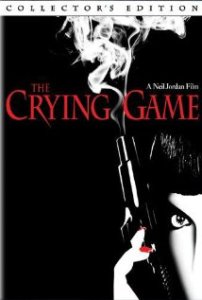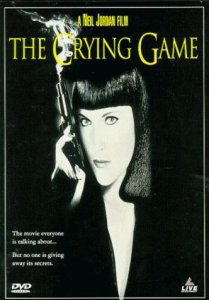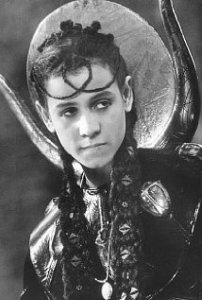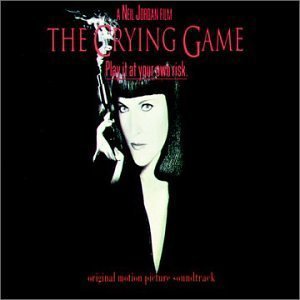The Crying Game **** (1992, Stephen Rea, Jaye Davidson, Forest Whitaker, Miranda Richardson) – Classic Movie Review 2096
Writer-director Neil Jordan’s striking and involving 1992 political thriller greatly impressed audiences with its unusual story and weird mix of sex and terrorism, especially in America, where it was a surprise hit, taking $62.5million there after a modest initial box-office reception in Britain. It took only £2million at home, though even that nearly covered it cost. There were six Oscar nominations and Jordan triumphed by winning a Best Original Screenplay for his out-of-the ordinary script.
It starts with a rather static and talky first half, though admittedly the dialogue is quite engrossing. Stephen Rea plays Fergus, a kindly Irish Republican Army volunteer who is guarding Jody, a kidnapped British soldier lured into an IRA trap by Jude (Miranda Richardson), another IRA member. A kind of friendship develops between Fergus and his hostage Jody.
It’s damaging to the film that Jody is unconvincingly played by American actor Forest Whitaker, who unfortunately gets the film’s biggest laugh at any London screenings of the movie when he says ‘I’m from Tottenham’. Whitaker may be a good, Oscar-winning actor, but he can convince no one he’s from Tottenham, unless there’s one in America.
The movie’s second half is an entirely different, telling a much more interesting story, in which Rea’s Fergus comes to London to fulfil his promise to seek out and protect Jody’s lover, a hairdresser named Dil (Oscar-nominated Jaye Davison). Fergus takes the name Jimmy, gets a job as a labourer and meets up with Dil, who knows nothing about Fergus’ IRA background. Fergus finds Dil at a hair salon and they talk in a bar, where he sees Dil singing the title song.
The Crying Game is a brave, ambitious and interesting film, but it’s an unlikely story and it’s hard to believe in a lot of it, particularly given some shaky dialogue and some shaky performances. However, the engaging Rea and alluring Davison are outstanding and the best of Jordan’s writing is indeed actually perhaps Oscar worthy. It is certainly remarkable and praiseworthy that Jordan doesn’t just aim at a serious-minded thriller but dares to go for a serious exploration of race, gender, nationality and sexuality against a backdrop of the Irish Troubles.
Also in the cast are Adrian Dunbar, Tony Slattery, Breffni McKenna, Joe Savino, Birdie Sweeney, Jim Broadbent and Ralph Brown.
Critics were originally sworn to silence about the film’s twist and it comes as a great shock if you’re not in the know. It was advertised as ‘the movie everyone is talking about but no one is giving away its secrets’, so I won’t either. Sworn to silence in 1992, my lips are still sealed.
Jordan was advised to change his original title of The Soldier’s Wife by his friend Stanley Kubrick who believed that films with religious or military titles were often flops, as Jordan had experienced with The Miracle (1991) and We’re No Angels (1989) flopped at the box office. Jordan took the new title from a 1964 hit British pop song, composed by Geoff Stephens and performed by Dave Berry.
Casting director Susie Figgis received a tip-off from director Derek Jarman about Jaye Davidson., who was ‘discovered’ at a wrap party for Jarman’s film Edward II (1991).
Miramax, who had initially rejected the screenplay, saw the finished movie and made an offer to distribute the film in the US, with a proviso that they would push the film for Oscar consideration.
© Derek Winnert 2015 Classic Movie Review 2096
Check out more reviews on http://derekwinnert.com/






